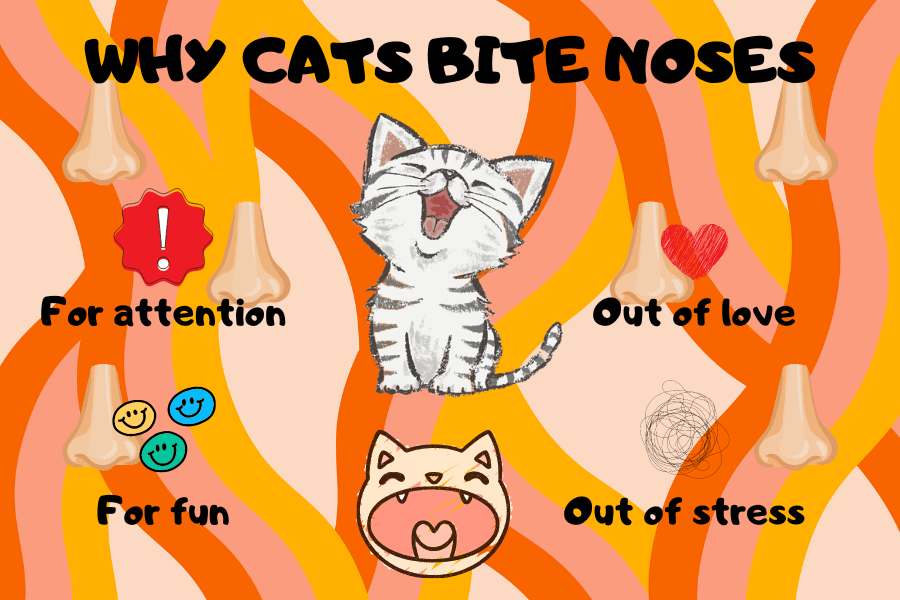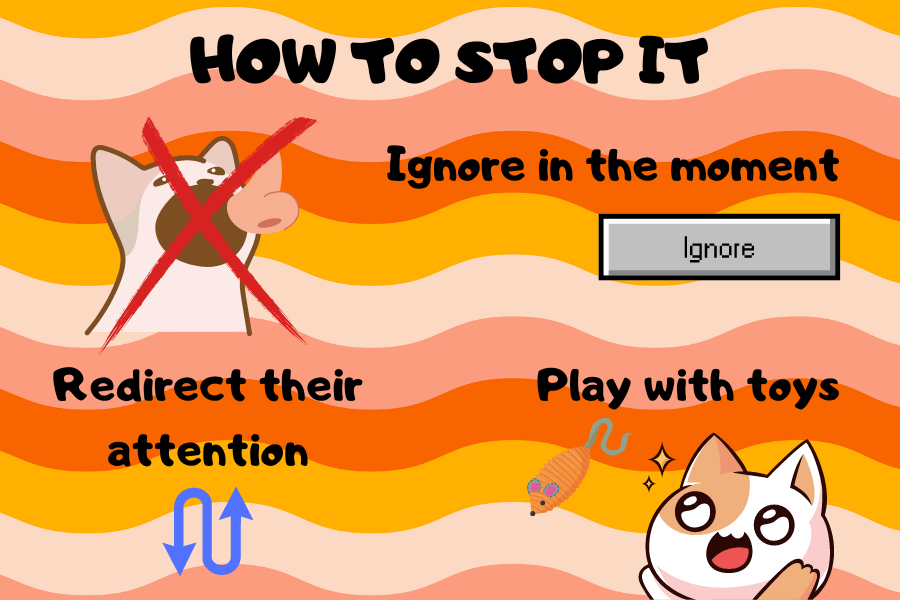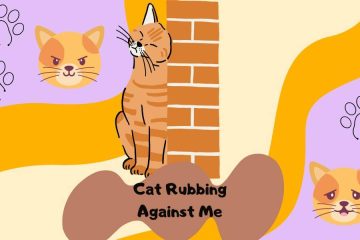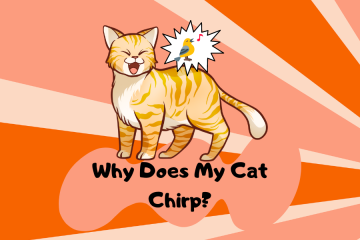Possible Causes
- Your cat may be seeking your attention
- It may be a form of rough play
- Your cat may be stressed by something in their environment
- Your cat may be trying to show affection by grooming you, which can include licking and biting
Affection or Play: Why Does My Cat Bite My Nose?
Is it a love bite, a grooming attempt, or something else entirely? If you’re wondering „Why does my cat bite my nose?”, you’ll need to consider a few possibilities. Trying to understand your pet can be tough, but that’s how cat parents build strong bonds with their kitties!

Seeking Attention
One possible reason why your cat bites your nose is that they’re trying to get your attention. Cats can be very demanding creatures, and some will use whatever means necessary to get their humans to focus on them. If you find that your cat only bites your nose when they want something from you, such as food or cuddles, then this is likely the reason.
Rough Play
Another possibility is that your cat is simply playing too roughly. Kittens, in particular, often play by biting and scratching their littermates. If your cat wasn’t properly socialized as a kitten, they may not know how to play gently with humans. This can be a difficult behavior to change, but it’s possible with patience and consistency.
If your cat is biting and scratching you during play, it’s important to teach them that these behaviors are not acceptable. The best way to do this is to immediately stop playing with your cat whenever they bite or scratch you. This will send the message that their rough behavior is not tolerated, and they’ll eventually learn to stop.
Stress or Anxiety
A third possibility is that your cat bites your nose because they’re stressed or anxious. Cats can be very sensitive creatures and sometimes react to small changes in their environment in unexpected ways. If you find yourself asking “Why does my cat bite my nose all of a sudden?”, it’s possible that they’re feeling distressed and are trying to self-soothe by licking or biting you.
Grooming Attempt
The final reason why cats may bite their owners is that they normally do it when they’re grooming themselves or another cat. If your pet is licking your face and suddenly bites your nose, it may just be part of their grooming routine. Try to understand your cat’s behavior, and if you think this is the reason for their biting you, then try not to let them lick your face in the first place.
What Should You Do If Your Cat Bites Your Nose?
If your cat bites your nose, it’s important to remain calm and avoid punishing them. Scolding your cat will only make them stressed. Instead, try to figure out why your cat bites your nose in the first place. Once you’ve determined the cause, you can then take steps to stop the behavior.
For example, if your pet bites your nose as a sign of affection, you can try to redirect their behavior to something else, like sitting on your lap instead. If the bites seem to be out of aggression, you may need to consult a veterinarian or behaviorist who can help you find ways to curb the aggressive behavior.
Editor’s Note
A cat biting your nose may be a sign of dominance. If you let your pet boss you around and demand attention on their terms, it’s time to reverse the roles. Let your pet know that you’re the one in control and set clear boundaries with them. This will help prevent this unwanted behavior from happening again.
Is Nose-Biting a Common Behavior in Cats?
Nose-biting is a relatively common behavior in cats and is usually not a cause for concern. Aggressive behaviors occur more often in cats weaned too early. If it hurts and you can’t seem to get your pet to stop, it’s always best to consult with a veterinarian and behaviorist. They’ll be able to rule out any medical causes and give you advice on how to best deal with the situation.
In the video below, the cat is clearly reciprocating his owner’s love bites. Ouch! The best thing she can do is not tease her kitty again
Should I Discourage My Cat From Biting and Licking My Nose?
If your cat bites you hard enough, they could break your skin and cause you to bleed. In addition, if your cat has any diseases or infections in their mouth, there’s a risk of them passing these onto you. While these are potential consequences of a cat biting their owner’s nose, most cats don’t bite hard enough to cause problems. If you’re concerned about your cat’s biting behavior, contact a professional!
How Can I Stop My Cat From Biting My Nose?
If you’re worried when asking “Why does my cat bite my nose?”, there are a few ways to stop it. One option is to provide your cat with more toys and playtime to relieve any boredom or stress that they may be feeling. It’s also critical to continue to socialize your cat, even as an adult, so that they learn how to play gently.

If your cat bites your nose to get your attention, it’s essential to ignore their behavior and only give them attention when they’re behaving appropriately. This can be difficult, but it’s critical to be consistent. Finally, if your cat is biting you during play, stop playing immediately and walk away. This will send the message that their behavior is not tolerated.
What Else Your Cat Is Showing When Licking and Biting Your Nose
Watch the body language of your cat when they’re licking and/or biting your face. If their ears are slightly back and their tail is swishing, this means they’re annoyed or stressed. On the other hand, if their body language is relaxed, with slow blinking of the eyes and purring noises, it usually means that they’re content and showing affection.
These signs will help you determine your next steps. If your pet seems distressed, try engaging in a calming activity like brushing their fur. If they seem relaxed and content, then you can give them more stimulation and playtime.
„Why does my cat bite my nose around other cats?” When there is another cat in the house, they may be feeling threatened by their presence. This can cause them to act out with displacement behaviors such as biting your nose. To help alleviate this problem, make sure that each cat has their own separate space where they can eat, sleep, and play.
How to Train My Cat so They Behave Better?
The best way to train your cat is by using positive reinforcement. Every time your cat does something good, like sitting down calmly or playing gently, give them a treat or verbal praise. This will help reinforce the behavior that you want to see and make it more likely for them to repeat it in the future.
You can also use a training method called “time out.” If your cat bites you or does something inappropriate, calmly stop interacting with them and leave the room for a few minutes. This will help them learn that their behavior has consequences and will ultimately discourage them from acting out in the future.
Finally, if all else fails, seek professional help from a certified animal behaviorist. They will give you tailored advice on how to deal with your particular situation and help you get your cat back on track.
General Tips for Dealing With a Biting Cat
There are a few general tips that you can follow when dealing with a biting cat.
- Figure out why your cat is biting in the first place. Once you’ve determined the cause, you can take steps to stop the behavior.
- If a cat bites you, it’s critical not to respond aggressively. When you punish your cat, they’ll become more stressed and the situation might get worse.
- If your cat is biting out of desperation for your attention, it’s critical to ignore their actions and only give them attention when they’re behaving properly.
- If your cat is biting during playtime, immediately stop playing and walk away for a few minutes to show your cat that their behavior was inappropriate.
In conclusion, why does my cat bite my nose? Playfulness, affection, anxiety, or attention-seeking? You should know by now!
Summary: Causes and Solutions
| CAUSE | SOLUTION |
| Your cat plays roughly | Teach them to play gently by yelping in pain and stopping play when they bite you |
| Your cat wants to show affection | Gently push them away from your face and offer pets instead |
| Your cat is bored and seeking attention | Play with them, but not immediately – only give them attention when they’re behaving well |
| Your cat is stressed | Determine the cause of their anxiety and resolve it |
Lucas Taylor is a veterinary assistant, freelance journalist and single dad who lives in the suburbs with his three pups: Ruby, Nala, and Woody. He has one cat named Pepper. When he’s not writing articles or working at the vet clinic, Lucas loves cooking French cuisine for himself and friends at home. One of Lucas’ favorite things to do is paddleboard with his son Noah and their canine companions. Pepper is the homebody of the bunch – she loves chilling on the couch.








